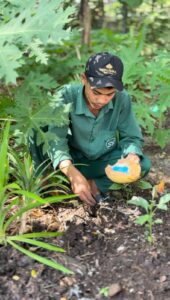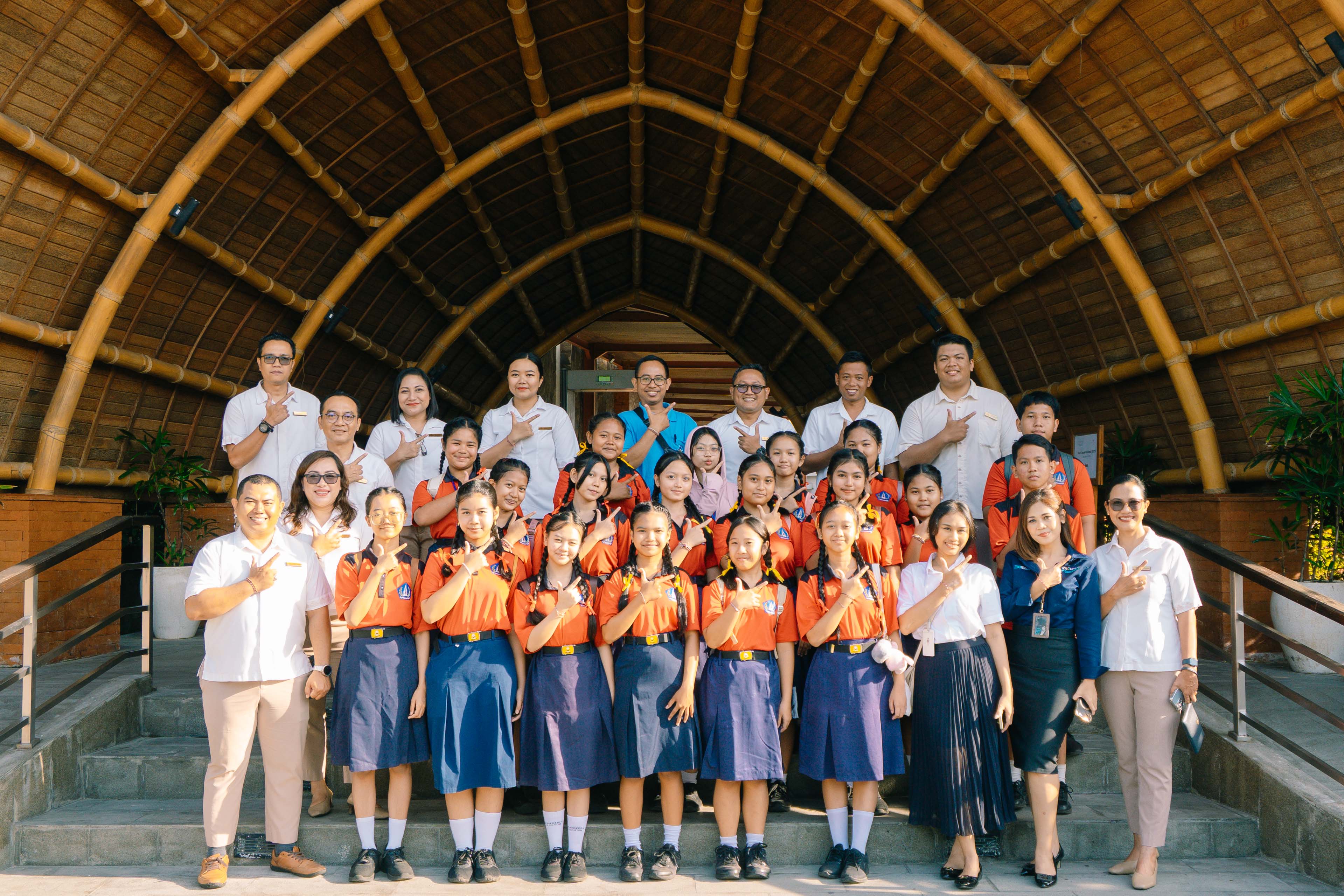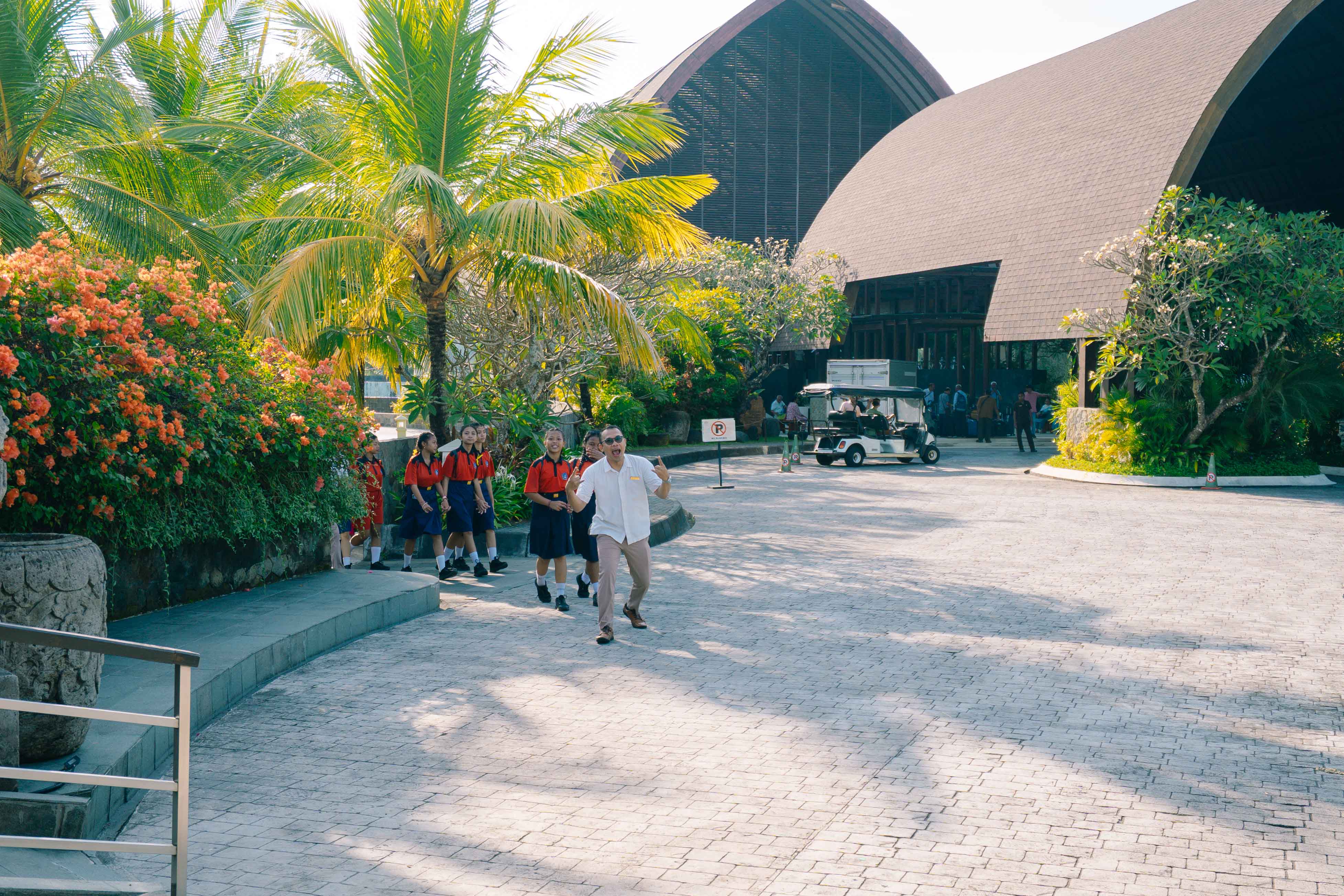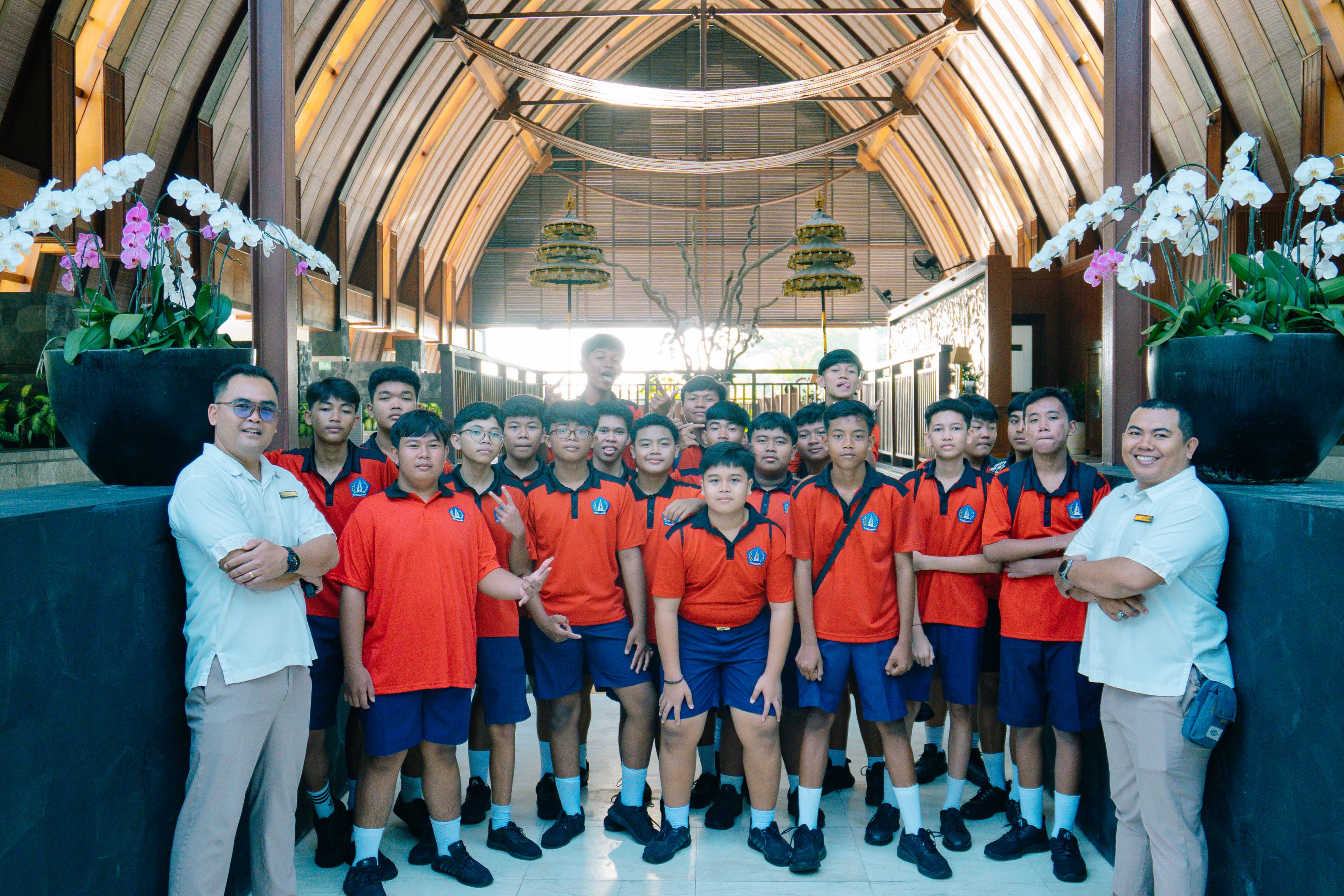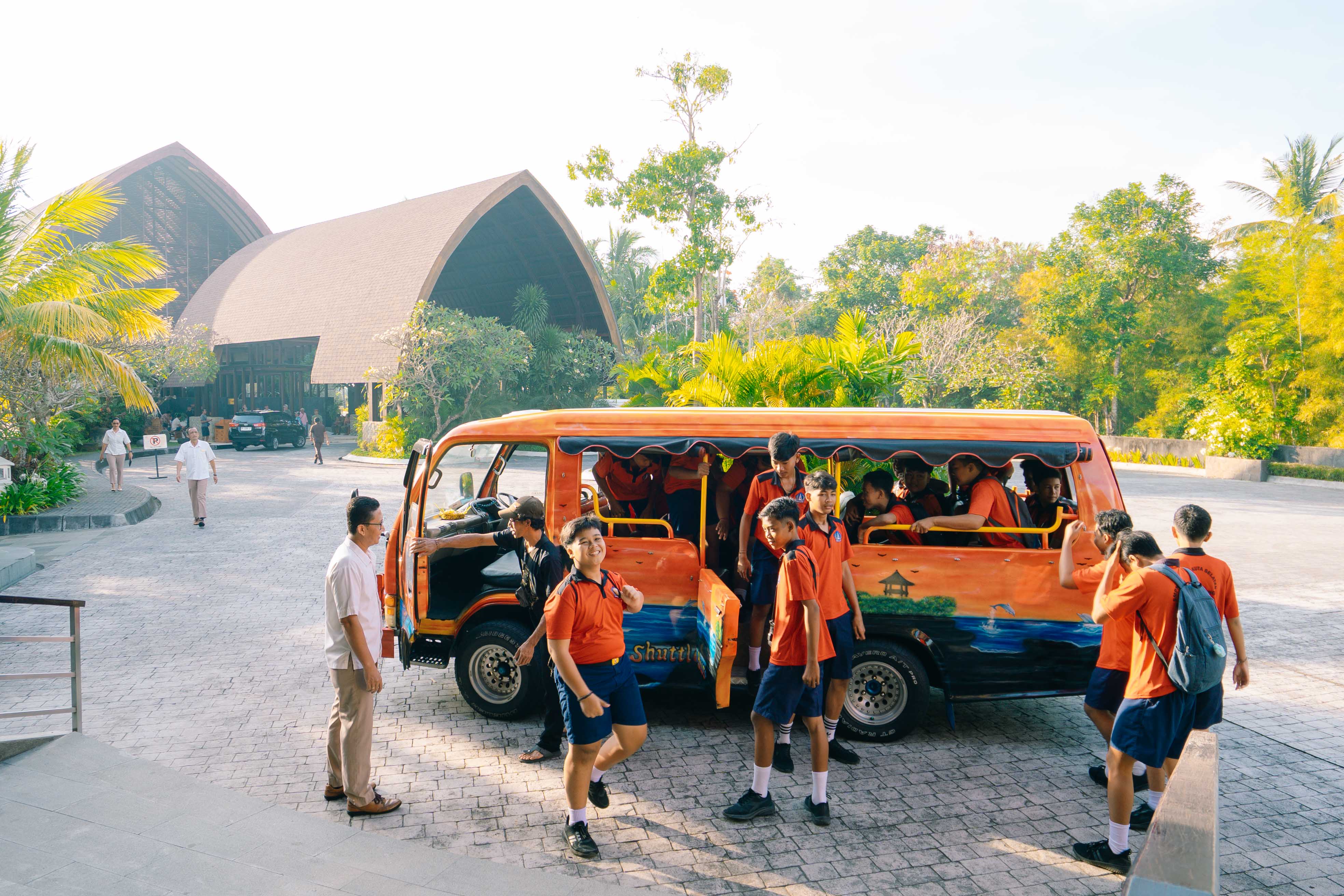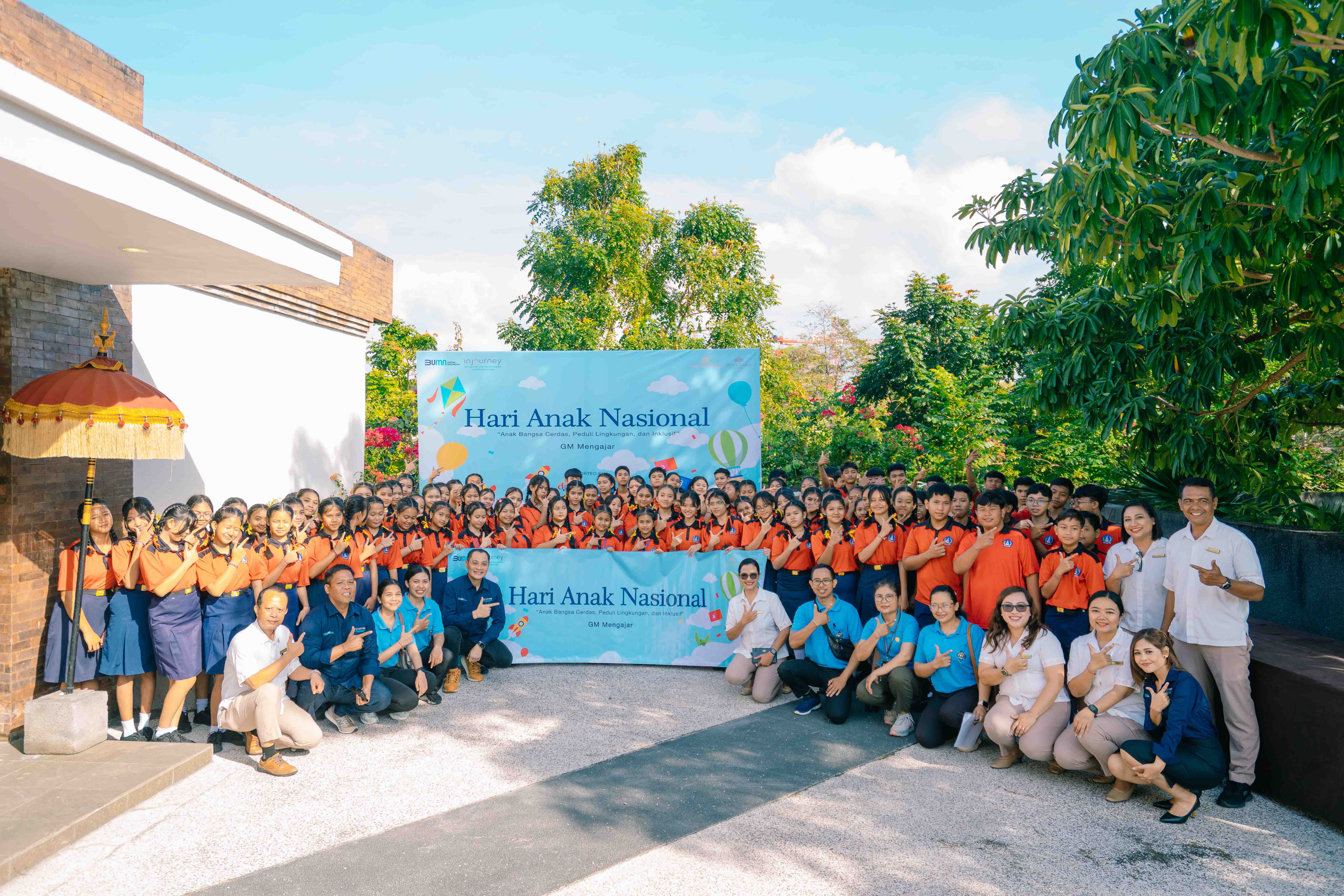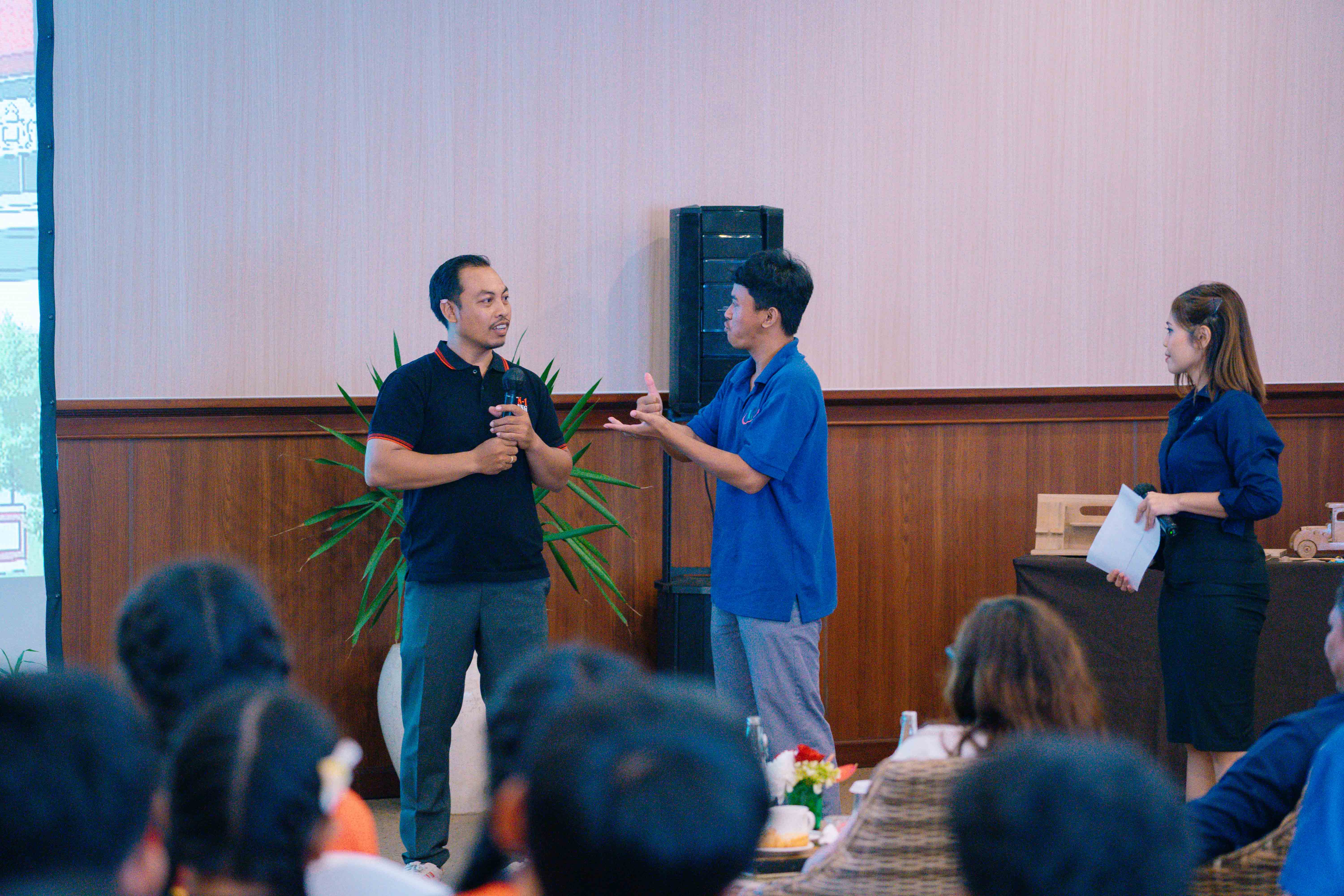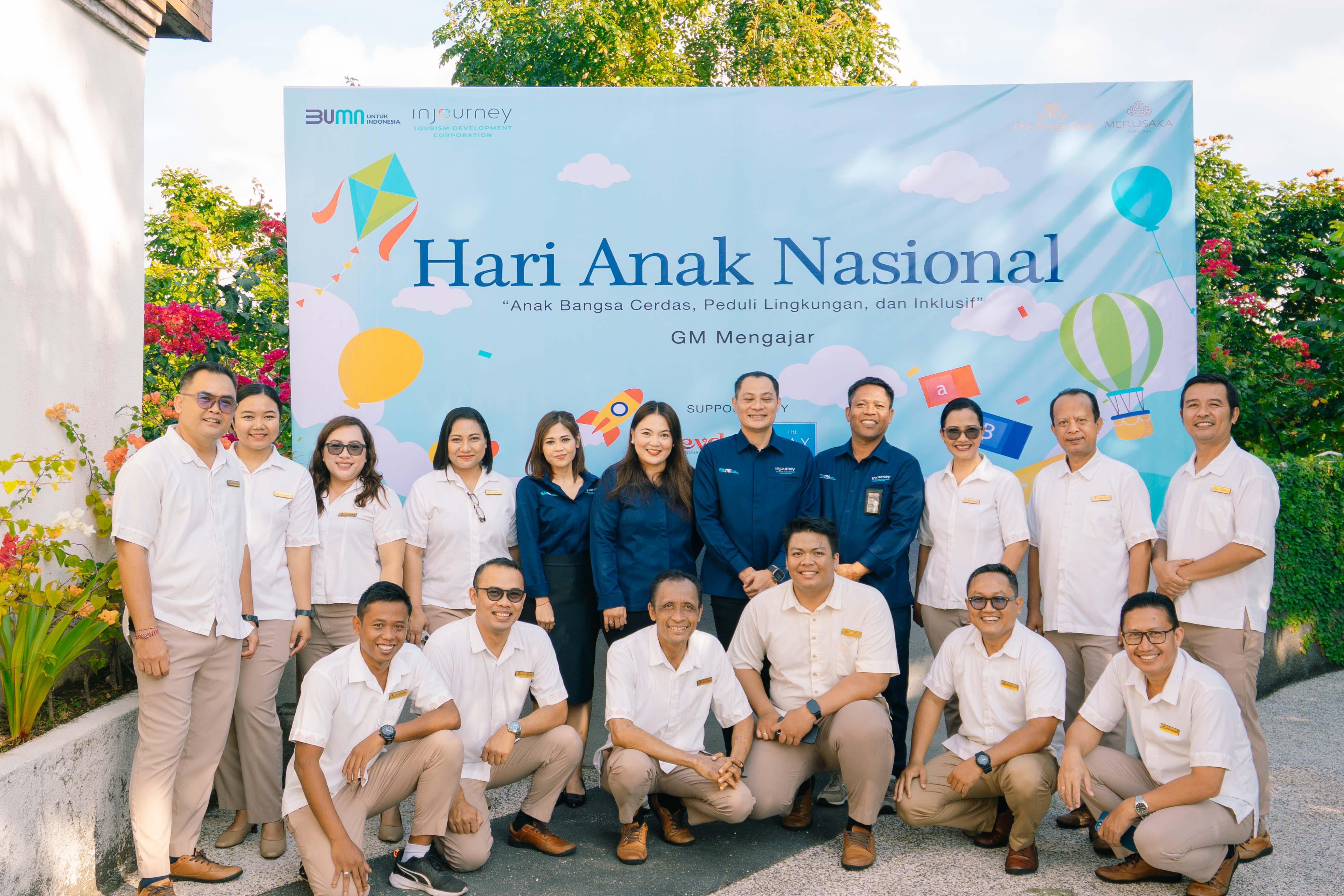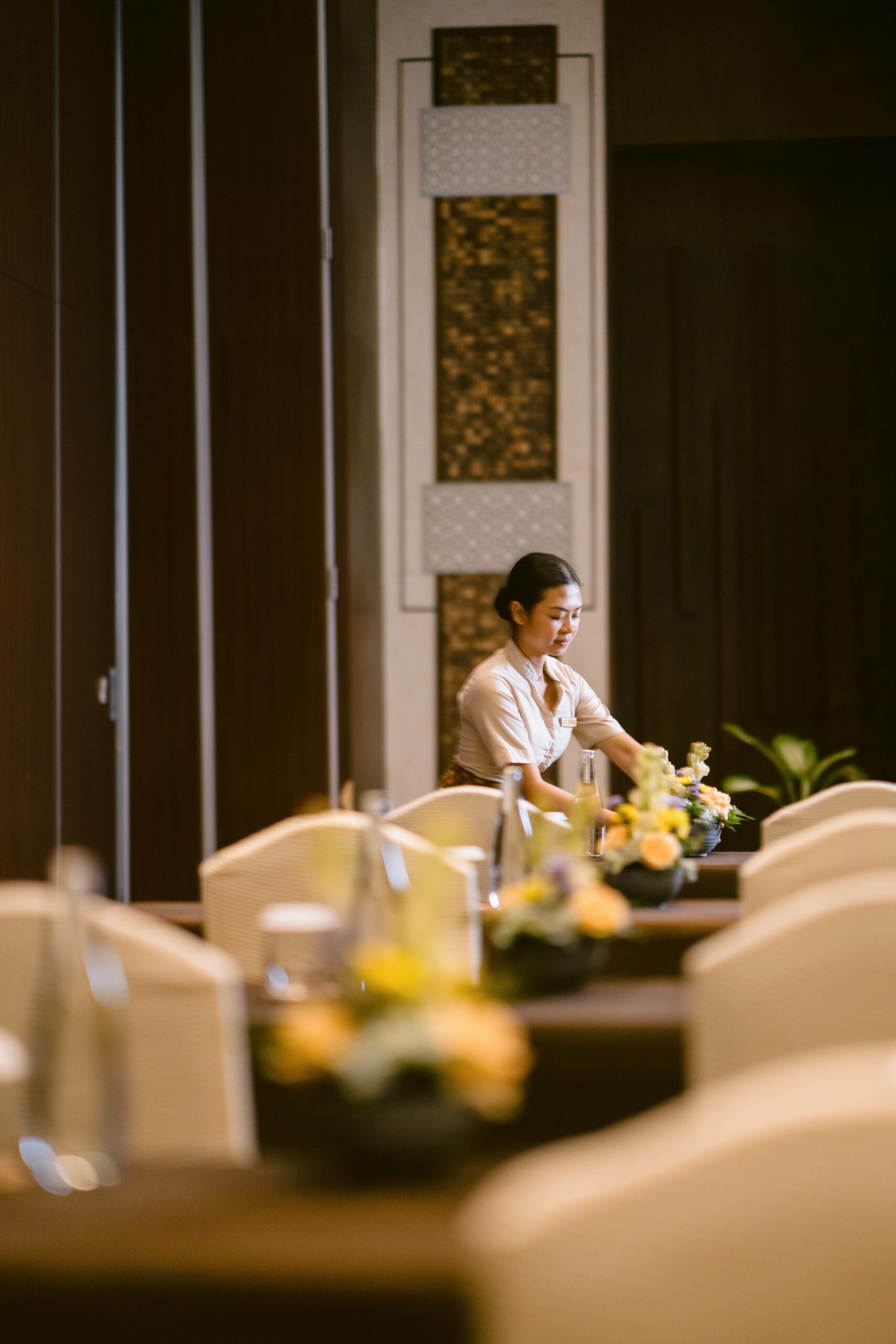Halo! To step through the gate of a traditional Balinese home is to enter a private, living microcosm of the universe.
Visitors often admire the ornate outer gates. However, understanding the thoughtful layout of the courtyard and its pavilions (bale) within offers profound insight. It reveals the very structure of Balinese family life. As your friendly hosts at Merusaka Nusa Dua, we’d love to take you on a guided tour of this special space.
The Guiding Philosophy: A Courtyard, Not Just a House
Before exploring the individual buildings, understanding the core concept is essential. A traditional Balinese home, or kuren, is not a single house.
A Microcosm of the Universe
This entire layout represents the cosmos on a small scale. It follows sacred architectural guidelines. These are known as Asta Kosala Kosali.
Orientation is Key
The layout orientates according to a sacred axis. The most important direction is kaja-kangin. This corner points both north (kaja, towards the holy Mount Agung) and east (kangin, towards the rising sun). Builders always place the most sacred elements of the home here.
The Natah (Central Courtyard)
The open space in the compound’s middle is the natah.
The Pavilions (Bale): A Tour of the Family Compound
Each pavilion within the compound has a specific name and designated purpose. This creates a functional and harmonious living space for the entire extended family. Let’s take a tour, starting from the most sacred corner.
1. The Sanggah or Merajan (The Family Temple)
This is the most sacred and important space. It sits within the entire compound. Always locate it in the holy northeast (kaja-kangin) corner. The sanggah is a collection of small shrines.
2. The Bale Daja (The Northern Pavilion)
This pavilion sits along the compound’s northern (daja) side. Traditionally, it serves as the primary sleeping quarters. The head of the family or respected elders often use it. Since the north points towards the sacred mountain, it is considered a high-status and pure location suitable for rest.
3. The Bale Dangin (The Eastern Pavilion)
This pavilion situates on the eastern (dangin) side. This direction holds significance for the rising sun and holiness. The Bale Dangin serves as the main ceremonial pavilion.
4. The Bale Dauh (The Western Pavilion)
This pavilion locates on the western (dauh) side.
5. The Paon or Dapur (The Kitchen)
The kitchen and other more “earthly” functions reside in the compound’s southern (kelod) part. This is considered the least sacred direction. The paon is often a simple, functional structure. Here, the family prepares daily meals. A rice barn, or lumbung, may also be found in this area.
The Gateway: A Portal Between Worlds
The iconic Balinese gate guards this sacred family space. It serves as both a physical and a spiritual entrance. You typically enter a family compound through a smaller, single-roofed gate called an angkul-angkul.
A Living, Communal Space
Ultimately, the unique design of a Balinese home reflects profound importance. It highlights community and the extended family unit.
Multi-Generational Living
These compounds do not design for a nuclear family. They are built to house multiple generations of the same patrilineal family. Sons often build new pavilions for their own families within the same compound.
Open-Sided Philosophy
The open-air design of most bale is intentional. It encourages constant interaction with nature and other family members. This blurs lines between indoors and outdoors. It also fosters a strong communal bond.
Conclusion: A Home Built on Harmony
A traditional Balinese home is a beautiful and complex space. It is far more than just a collection of buildings. It is a living philosophy carved in wood and stone.
Understanding this beautiful layout gives visitors deeper insight. It reveals the core values of Balinese culture: family, community, and spirituality. It’s a reminder that every structure in Bali, no matter how small, often holds a much deeper meaning.


